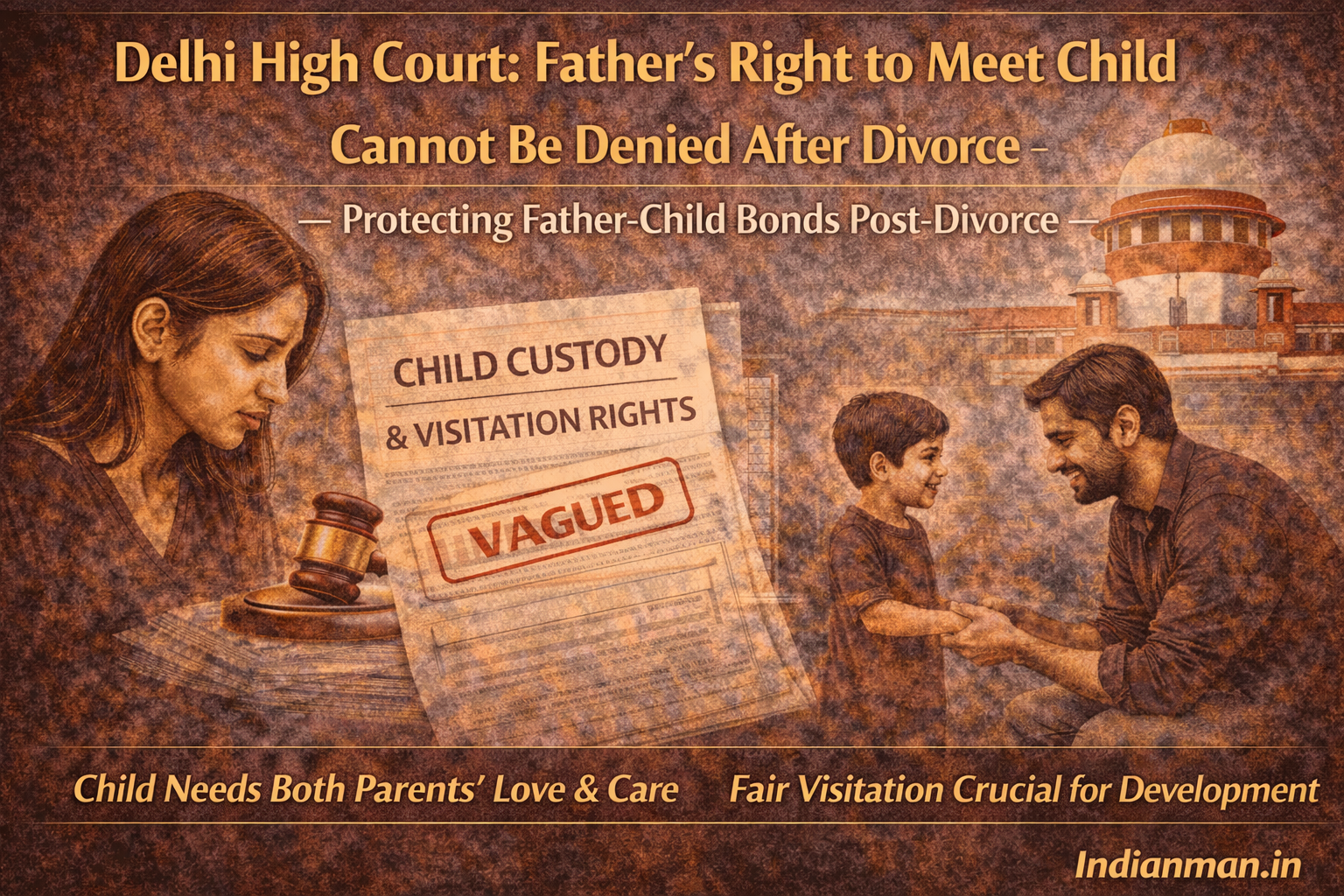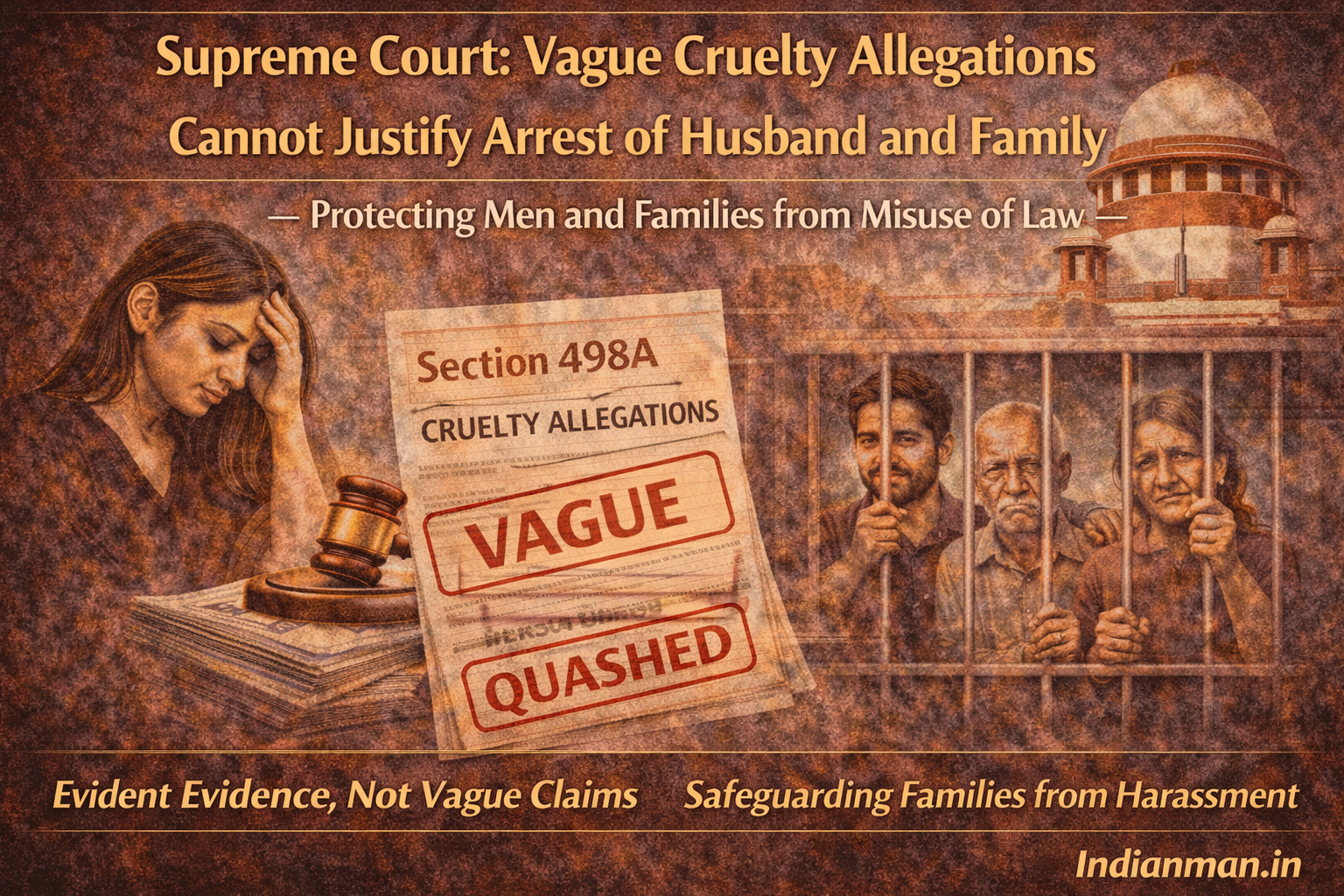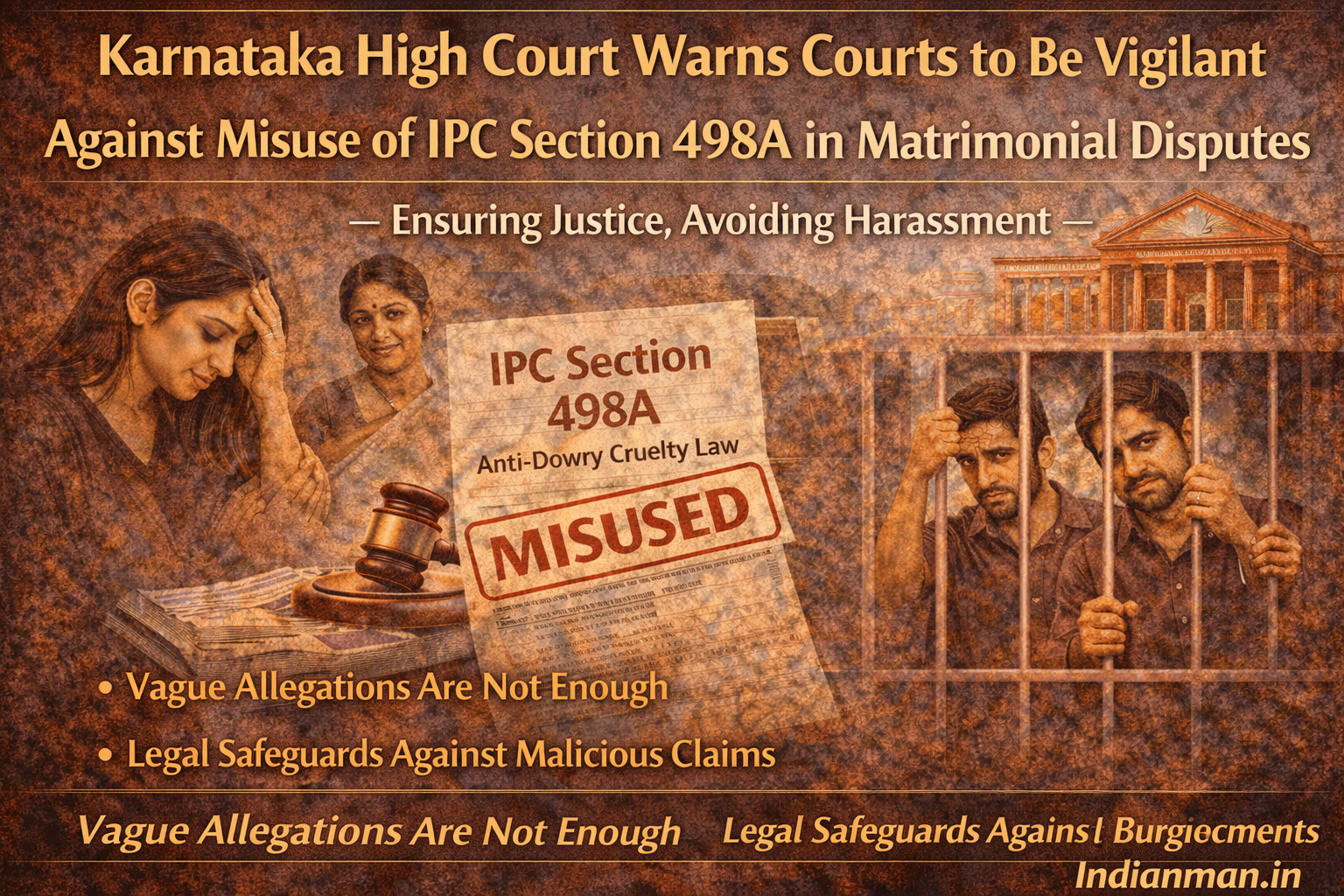No Arrest in Section 498A Cases for First 2 Months: Supreme Court Revives Allahabad HC Guidelines
The Supreme Court of India has revived the guidelines earlier issued by the Allahabad High Court to prevent misuse of Section 498A of the Indian Penal Code (IPC), which deals with cruelty and dowry harassment against women.
On July 22, a bench of Chief Justice of India D.Y. Chandrachud and Justice A.G. Masih ruled that no arrest or police action should take place for two months after an FIR or complaint is lodged under Section 498A.
The decision came while hearing a long-running matrimonial dispute between IPS officer Shivangi Bansal (also known as Shivangi Goel) and her estranged husband, Sahib Bansal. The couple, who married in 2015 and separated in 2018, had been engaged in more than 20 legal disputes including domestic violence cases, maintenance claims, and Section 498A proceedings.
Cooling-Off Period Before Arrests
The Court observed that misuse of Section 498A often causes immense suffering to families. To address this, it upheld the Allahabad High Court’s 2022 guidelines, making them applicable across India.
Key directions include:
- No arrest or police action for two months after a complaint under Section 498A.
- During this period, cases must be referred to a Family Welfare Committee (FWC) under the District Legal Services Authority (DLSA).
- Committees will include mediators, retired judges, social workers, or legal experts.
- FWC members cannot be called as witnesses in future trials.
- The FWC will consult both parties and four elder family members (two from each side) and submit a report within two months.
If both parties agree to a settlement, the District Judge may close the case with support from the Legal Services Authority.
Settlement in the Case
In the present case, both parties informed the Supreme Court that they had reached a mutual settlement. The Court then:
- Granted custody of the daughter to the mother, with visitation rights for the father.
- Quashed all civil and criminal proceedings between the couple.
- Recorded that the wife waived claims of alimony and maintenance.
- Directed the wife to publish an apology in newspapers and social media (without admission of liability).
- Transferred a property belonging to the wife’s mother to the husband.
- Barred both parties from filing future cases against each other.
Finally, using its powers under Article 142 of the Constitution, the Supreme Court dissolved the marriage and ensured the settlement terms would be fully enforced.
The Court emphasized that the two-month cooling-off period will give couples a chance to resolve disputes peacefully without fear of immediate arrests, thereby reducing harassment caused by misuse of Section 498A.
Be a part our social media community:
Facebook: https://www.facebook.com/IndianMan.in?mibextid=ZbWKwL
Instagram:
https://www.instagram.com/indianman.in?igsh=MWZ2N3N0ZmpwM3l3cw==




